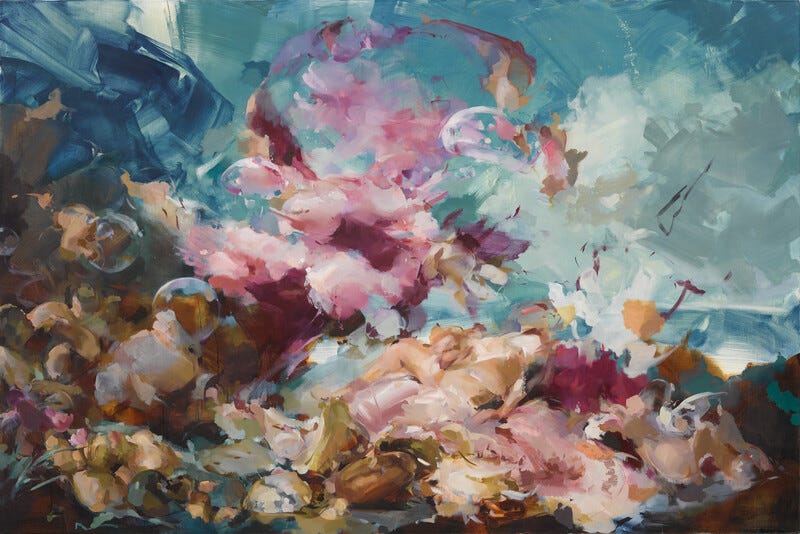Abstract Florals and Contemporary Rococo
In recent years, Flora Yukhnovich has taken the art world by storm with her reimagining of Rococo for the 21st century.
This essay is part of the series Flowers in Art. To read other essays in this series and gain access to the full archive, become a paid subscriber today:
When Flora Yukhnovich was a student at City & Guilds of London Art School, she stumbled upon a book at the library that would forever change the course of her career. It was a book of paintings by the French Rococo artist, Jean Honoré Fragonard.
Of course, Yukhnovich didn’t make it to art school without knowing Fragonard. But when she was introduced to his art as a teenager in Norwich, England, she had a very different reaction to his work. She told Stephen Dubner in a 2022 interview with Freakonomics Radio:
YUKHNOVICH: I probably saw it for the first time when someone showed it to me being like, “Look how awful this is,” or, “Look how frivolous or how kitschy this is.”
DUBNER: Did you feel that yourself about Fragonard when you first saw it? Or were you impressionable and this person said, “Oh yeah, this is so tacky,” and then you just agreed?
YUKHNOVICH: I think the latter … I felt like I should dislike it immediately. There was just too much color. It’s designed to please, and I was aware of that and suspicious of it.
DUBNER: What made you suspicious of that notion?
YUKHNOVICH: When I was trying to learn what is good and what is bad, something being challenging was a good thing and you wanted to educate yourself to the point where you could enjoy something that is challenging.1
Snobbishness is an expression of fear: fear that others will discover that we are not as sophisticated or as impressive as we would like to be perceived. What Yukhnovich is describing is a common phenomenon in artistic circles, in which something that is widely enjoyed or “suspiciously” pretty is seen as déclassé. In fairness, there can be the opposite phenomenon as well—such as the visceral anger that Abstract Expressionism inspires in some viewers who, deep down, feel insecure about not “getting” it.




